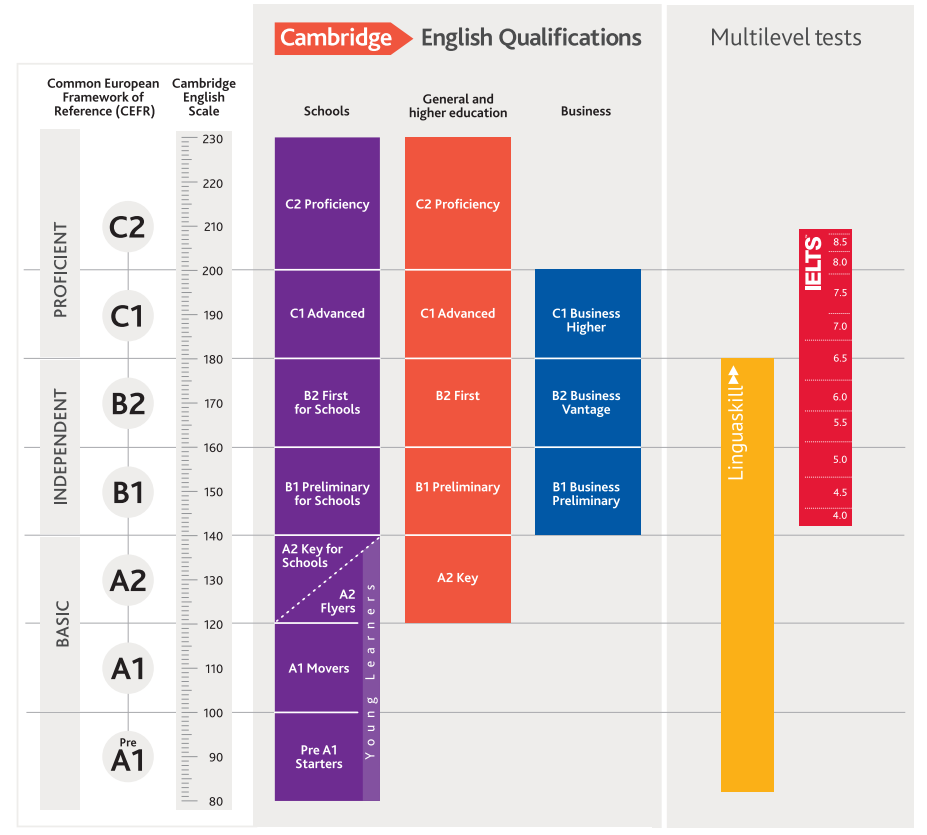Discover our programs and start learning to achieve complete command of English or any other language of your interest. Prepare for an official language exam or launch your international career with a Business English course. We offer tailored courses for every level and for all languages.
Contact us
Tel: 02 29521559 – 02 87387922

Percorso: tutto l’anno, giorni e orari da concordare
Durata: 30-45-60 ore (90-120 minuti di lezione)
Livello: tutti i livelli, dall’elementare all’avanzato
Attestato di frequenza: a completamento corso e a conferma del livello raggiunto
X
La lezione one-to-one è destinata a studenti che necessitano per scopri diversi – studio, lavoro, viaggio – di un training linguistico intensivo, al fine di raggiungere in tempi brevi i proprio obiettivi di formazione. Studiato sulle specifiche esigenze dello studente, il programma offre la massima flessibilità nella pianificazione didattica e logistica delle lezioni e può iniziare in qualsiasi momento dell’anno. Il percorso di apprendimento viene seguito – dal test d’ingresso fino alla conclusione delle lezioni – dal nostro Director of Studies, che è a disposizione anche online, oltre che in sede, per qualsiasi consulenza o assistenza, richiesta dal Cliente dal posto di lavoro, da casa o in viaggio. Le lezioni si concentrano sulla lingua parlata, sulla capacità di interagire in situazioni diverse, con il qualificato sostegno dell’insegnante madrelingua. Al termine delle 60 ore di lezione solitamente necessarie a completare un livello linguistico, lo studente potrà sostenere un esame di certificazione internazionale direttamente presso la nostra sede. Il Certificato di qualità rilasciato da Language Point comprende una breve relazione sul corso, i contenuto e le competenze raggiunte, una votazione e un giudizio finale da parte del docente incaricato e della Direzione Didattica per il proseguimento degli studi. Il certificato viene confermato agli studenti che hanno frequentato almeno l’85% delle lezioni del loro corso.
We organize over 1600 courses a year in Language Point and at our clients’ premises. General language courses (English, Italian for Foreigners, French, German, Spanish etc.) are available at all levels and for every need. They are designed to improve the language for professional reasons, to face international exams and certifications, for those who want to move abroad or simply for personal interest.
Knowledge and competence of Language Point’s professionals. Qualified and experienced mother tongue and bilingual teachers, with a long experience in the field of language training and constantly updated. Ad hoc methodologies and design solutions to reduce time and costs.
Vision. Cooperation. Technology. A continuous commitment to innovative solutions and systems for the simplification of work. A portfolio with products and services of top level partners for the complete satisfaction of our customers.
of international prestige to increase the value of competence and collaboration
that will allow you to compare yourself with different and fascinating cultures and their traditions
Flexibility, concreteness and motivation

It is not easy to define and explain the concept of “method”, nor it seems possible to indicate general learning theories and fix techniques to explain what, in teaching practice, the mother tongue teacher does to adapt to the different reference contexts and to the training needs of the students.
It is therefore correct to think that our teachers follow different “methodological orientations” that determine their operational choices and the achievement of the set objectives. The teaching we offer is essentially of a pragmatic-communicative approach, that is aimed at achieving certain goals based on the need to bring authentic communicative situations to life.
Pragmatics is in fact the study of language in relation to the use made of it by the speaker, taking into particular consideration the situations and purposes of communication. The teacher who follows the pragmatic-communicative approach focuses on the practical, concrete meaning of communication, that is the effect that the speaker intends to achieve with his or her speech acts. The primary objective of teaching a foreign language is no longer the mastery of a formally correct language, but communicative competence, in order to be able to communicate appropriately in certain situations.
The individual and direct involvement of the student in the class allows them to exploit their strengths to better develop their language skills. The atmosphere in the classroom is therefore fundamental, which is relaxed, familiar and rewarding. All our language projects intend to give particular feedback to the directives of the European Union and the Council of Europe. They respond to the need to accurately trace the student’s learning profile in terms of incoming personal skills, definition of objectives and purposes of use, timely verification of partial and end-of-course results. The importance of learning modern languages beyond one’s own has several purposes:
It is therefore characteristic of the Language Point teacher to pay attention to the orientation dimension and to the “ad personam“ language training.”.
The Language Point teacher is used to planning the didactic intervention through a plan that facilitates learning and adapts to the differences in skills and interests of his students.
The organization of the syllabus is not structural but essentially communicative. The communicative needs of the students constitute the criterion for selecting and organizing the linguistic content.
From the learning and use of the communicative functions, we proceed to the identification of the grammatical structures and the learning of the rules. In order to satisfy their communication needs, students will be able to communicate not only verbally but also in writing, proceeding in compliance with the progression: listening-speaking-reading-writing. Normally articulated on 6 levels (13 sub-levels) of general linguistic competence and in line with the Common European Framework of Reference (CEFR), our plan for European languages is structured as per the table above.
Different times are required to pass from one level to another. The number of hours of study may therefore vary, also due to the different type of course. For example, if in many cases 60 to 90 hours may be enough to pass from level A2 to level B1, for other courses the level passage requires the attendance of two successive courses of 90 hours each.
The analysis of training needs, the first step for the optimization of personal and business results
Tailored solutions
Whatever your goals and aspirations, our learning solutions are always designed and tailored to your needs
Book now the level test and an interview with our Director of Studies >
THE CONSULTANCY IS FREE AND WITHOUT COMMITMENT
Dedication, tools, evolution to guarantee your maximum satisfaction, provide you with high quality training solutions and services
Resta aggiornato con le nostre news e le nostre promozioni. Seguici anche sui social.

Linda BertellaResponsabile Area Italiano per Stranieri
X
Heni acest qui sit, id quam qui que autatem expernam rem endit, qui culparcimus inci comnim fugita nos aut invent moluptatis quam..
Heni acest qui sit, id quam qui que autatem expernam rem endit, qui culparcimus inci comnim fugita nos aut invent moluptatis quam..
Heni acest qui sit, id quam qui que autatem expernam rem endit, qui culparcimus inci comnim fugita nos aut invent moluptatis quam..
Heni acest qui sit, id quam qui que autatem expernam rem endit, qui culparcimus inci comnim fugita nos aut invent moluptatis quam..
Heni acest qui sit, id quam qui que autatem expernam rem endit, qui culparcimus inci comnim fugita nos aut invent moluptatis quam..
Heni acest qui sit, id quam qui que autatem expernam rem endit, qui culparcimus inci comnim fugita nos aut invent moluptatis quam..
X
Heni acest qui sit, id quam qui que autatem expernam rem endit, qui culparcimus inci comnim fugita nos aut invent moluptatis quam..
Heni acest qui sit, id quam qui que autatem expernam rem endit, qui culparcimus inci comnim fugita nos aut invent moluptatis quam..
Heni acest qui sit, id quam qui que autatem expernam rem endit, qui culparcimus inci comnim fugita nos aut invent moluptatis quam.
Heni acest qui sit, id quam qui que autatem expernam rem endit, qui culparcimus inci comnim fugita nos aut invent moluptatis quam..
Heni acest qui sit, id quam qui que autatem expernam rem endit, qui culparcimus inci comnim fugita nos aut invent moluptatis quam..
Heni acest qui sit, id quam qui que autatem expernam rem endit, qui culparcimus inci comnim fugita nos aut invent moluptatis quam..
Heni acest qui sit, id quam qui que autatem expernam rem endit, qui culparcimus inci comnim fugita nos aut invent moluptatis quam..
Heni acest qui sit, id quam qui que autatem expernam rem endit, qui culparcimus inci comnim fugita nos aut invent moluptatis quam..
Heni acest qui sit, id quam qui que autatem expernam rem endit, qui culparcimus inci comnim fugita nos aut invent moluptatis quam..